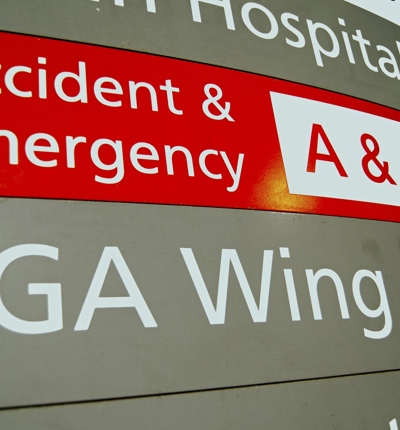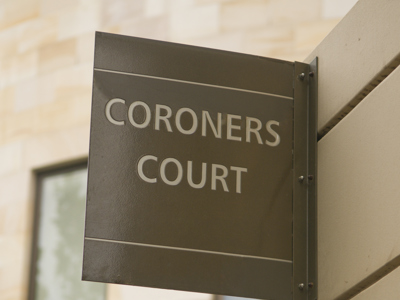
A&E negligence claims
Doctors and nurses in accident and emergency (A&E) departments usually deliver a high standard of care when diagnosing, treating and referring patients.
But they are also under great pressure. A&E departments are busy environments with an average of 67,991 people treated every day across England in 2018-19.
This can sometimes lead to cases of A&E negligence, when doctors and/or nurses make mistakes. If this happens, then you may have a genuine accident and emergency claim.
What defines A&E negligence?
A&E negligence can occur due to the action or inaction of a medical professional - either accidentally or intentionally - when they fail to provide the expected standard of care.
There are two main types of A&E negligence:
- Misdiagnosis – Illnesses or injuries can be misdiagnosed or missed completely, potentially leading to prolonged pain and suffering, or even fatal consequences. Medical personnel who tend to you or a family member should be trained to make accurate diagnoses under pressure.
- Poor or wrong treatment – Failing to prescribe the right medicine or deliver the appropriate treatment can lead to further health complications and potentially a negligence claim. This could be failing to refer for tests, misinterpreting results, ignoring medical history or not admitting to hospital.
What our clients say
Types of A&E negligence claims
A&E departments are designed to deal with serious, life-threatening injuries and illnesses that require immediate treatment. According to NHS guidelines, this can include:
- Breathing difficulties
- Loss of consciousness
- Chest pains
- Severe, unstoppable bleeding
- Serious burns
- Stroke
- Major trauma
Whatever your reason for visiting A&E, various examples of negligence can occur, such as:
- Delays – Time is vital in A&E and unreasonable delays in treatment can lead to your condition worsening. What is deemed as an unreasonable time in which to receive treatment, can depend on the type or severity of the injury or illness.
- Insufficient examination – The doctor or nurse is expected to examine you properly and prescribe appropriate treatment or make a referral. An inadequate examination can mean symptoms are missed and appropriate treatment delayed.
- Failure to refer – Based on the initial assessment, the medical professional might be expected to refer you for further tests, to see a specialist or admit you to the hospital. If they don’t refer when they should have done and the condition worsens, then a claim could be made.
- Inexperience – Mistakes can occur due to inexperienced or unqualified medical personnel working in A&E. While on the job training is vital, it shouldn’t be at the risk of patient health. If it is, then you may have a legitimate negligence claim.
- Infections – Poor treatment of wounds can lead to complications and infection, requiring additional treatment.
Making an A&E negligence claim
If you’ve experienced negligence while in an accident and emergency department and think you have a genuine claim, your first step should be to contact our expert team of medical negligence solicitors to discuss your case.
They will confidentially ask you a set of questions to assess whether or not you have a valid claim – for free. If our experts believe you have a case, they will then explain the best steps to take.
A&E cases we have settled
6-figure sum
A 12-year-old girl received a six-figure sum when her father died after suffering a misdiagnosis and heart attack in A&E
Misdiagnosed stroke
A 41-year-old woman settled a claim after having a stroke misdiagnosed in A&E
IVF funding
A 33-year-old woman received compensation to fund IVF treatment when her ectopic pregnancy was misdiagnosed in A&E.
What do I need for a claim?
To make a successful claim for accident and emergency compensation, you will need evidence that the medical professional who treated you didn’t meet the expected standard of care.
This could include providing:
- medical records
- discharge letters
- evidence of further treatment or medication required
- evidence of additional injuries sustained
Our expert solicitors will gather all the relevant information and will obtain expert evidence from independent medical professionals on the standard of care and treatment provided to you, and your current condition and prognosis. This will enable them to assess the strength of your potential claim, the nature of your injuries and the likely value of your claim.
A&E negligence compensation
Compensation from an A&E negligence claim can be used to cover you or the patient involved for the physical, psychological and financial impacts resulting from medical negligence.
The amount of compensation awarded will be based on the specifics of your case and can be used to help cover the costs of:
- additional medication
- extra medical treatment
- loss of earnings
- disability support
- ongoing care
- therapies
Why choose Leigh Day?
Making a claim and receiving compensation for negligence during a visit to an A&E department can be complex and time consuming.
But at Leigh Day, we have one of the UK’s biggest and most experienced team of solicitors working in this area. For more than a decade, The Legal 500 and Chambers have consistently ranked us highly.
A&E FAQs
Your accident and emergency claim will be against the local NHS Trust responsible for the A&E department where you were treated. NHS Resolution handles clinical and non-clinical claims on behalf of NHS organisations and independent sector providers of NHS care.
Learn more about the NHS complaints process.
Compensation paid out for A&E claims comes from the money paid by NHS Trusts to NHS Resolution. NHS Resolution, which was set up by the UK government, pays out on behalf of the specific Trust acting as a defendant. Every Trust is required to pay an annual premium fee, whether they pursue/defend a claim in that year or not.
You have three years to bring forward a claim, either from when the A&E negligence occurred or when you first became aware of an injury or illness as a result of negligence. For children, the three-year period only begins when they are 18, so they will have until they are 21 to make a claim. If your child is over 21, it may still be possible to extend this time limit if assessments have identified that they do not have legal capacity. For example, if they are suffering from an intellectual impairment and cannot make decisions for themselves.
Yes, you can bring an A&E claim forward for a relative or close friend if they have died as a result of negligence or don’t have the capacity to take legal action6. Normally this will be your child or an elderly parent, unable to look after their financial and legal affairs. Make sure you are an administered trustee to look after any compensation awarded, until they are capable.
A&E case settlements

Hospital’s failure to spot testicular torsion results in substantial compensation payment
A 33-year-old man has settled his medical negligence claim against an NHS Trust for their failure to spot testicular torsion which resulted in his testicle being surgically removed.

Mid Yorkshire Hospitals NHS Trust settlement for family of disabled woman aged 20
Mid Yorkshire Hospitals NHS Trust has agreed a settlement with a mother acting on behalf of the estate of her 20-year-old daughter who died following mistreatment of a blocked shunt.



